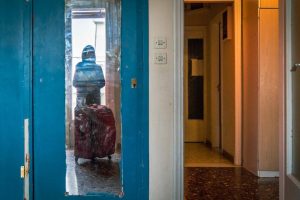“A lot of these judges were responsible for administering the rule of law and quite rightly they are fearful about the consequences that could now face them with the rise of the Taliban.” (British Justice Minister Robert Buckland)
In August, I wrote an article titled “The Women of Afghanistan: Our Collective Darkness, Our Hope for the Future,” in which I explored the often precarious fate of the women and girls of Afghanistan, arguing:
“The harsh reality is that the future of Afghani women is the future of Afghanistan. The way forward through the pain, degradation, and chaos of the past is dependent on the treatment of Afghani women in the present. This life is the collective body of women who comprise the future of not only Afghanistan but inherently the totality of humankind as well. Their future is our future, their plight is our plight, and if they enter darkness, we too shall be consumed by it.”
Unfortunately, that future appears as bleak and as dark as any time in the past, perhaps worse. As BBC reports, “more than 220 female judges were living in hiding because they feared retribution under Taliban rule. Speaking from secret locations inside Afghanistan, many of those women said they were receiving death threats on a daily basis.”
The reason these women fear for their lives is that, as one judge put it, they delivered “long and serious” punishments for acts such as “murder, suicide, rape, and other complex crimes” to men who have now been released by the Taliban. Bent on revenge, the men have come after the judges, forcing them to flee or to go into hiding in their own country as they wait to be rescued.
A judge wishing to remain anonymous described how “Four or five Taliban members came and asked people in my house: ‘Where is this woman judge?’ These were people who I had put in jail.” Another woman, who goes by the name of Nabila, was a judge in Afghanistan’s Supreme Court, where she granted divorces to women whose husbands were sometimes sent to prison for assaulting or kidnapping them.
Then when the Taliban took over in the hasty, ill-prepared exit in August, these men, now free, issued death threats against Nabila, who said from a safe house, “I lost my job and now I can’t even go outside or do anything freely because I fear these freed prisoners. A dark future is awaiting everyone in Afghanistan, especially female judges.”
Another woman, going by the name of Sana, painted a sad picture: “It was the worst moment of my life, when I looked at my kids while leaving. I was so hopeless. I wondered whether I would ever get them out of Afghanistan alive.” Even after initially fleeing, Sana spoke about how “We were changing locations every two to three days, moving from the street to safehouses and hotels,” sadly adding, “We couldn’t go back. Our own house had already been raided.”

Source: BBC